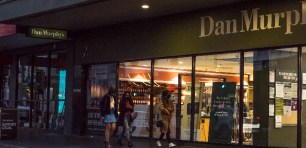
Source: Splash.
Bullying, sexual harassment, wage theft and exploitation are some of the most alarming issues facing the Australian hospitality industry today, according to a University of Queensland study.
Approximately 400 hospitality employees were surveyed in late 2021 and early 2022 by Associate Professor Richard Robinson from UQ Business School, with the findings published in the report, Serving up a Fair Go? Surfacing cultural issues in hospitality employment.
The report found more than 60% of respondents experienced sexual harassment, verbal and psychological bullying or racial abuse, while more than 70% of employees witnessed these behaviours.
While customers were the main perpetrators, 42% of respondents said the abuse came from their managers or supervisors.
Robinson says he hoped his findings give exploited hospitality workers a much-needed voice.
“The results exposed deep cultural issues in the hospitality industry, with poor behaviours and practices that have become normalised and systemic,” Robinson said.
“The general public should be aware that the people serving them in restaurants, cafes, hotels and clubs are often under immense strain — and we should cut them some slack.”
Other significant concerns detailed in the report related to pay and contracts, with almost 20% of respondents not receiving minimum pay rates or unsure whether they were paid fairly.
Around 45% of workers reported not receiving overtime or penalty rate loading entitlements, while more than 30% said they never saw a contract or written terms for their current job.
Robinson says it is important to highlight these issues, particularly in the current tight labour market.
“With the unemployment rate at 3.4%, demand for workers is high but supply is low — allowing some hospitality workers to negotiate higher wages and better conditions,” he said.
“But unless all industry leaders and business owners address these cultural issues at their core, we’ll return to an imbalance of power when labour market dynamics change.”
Last month, Australian Bureau of Statistics head of labour statistics Bjorn Jarvis confirmed that the seasonally adjusted unemployment rate had fallen in July 2022.
“With employment falling by 41,000 people and the number of unemployed people also decreasing by 20,000, the unemployment rate fell by 0.1 percentage points, to 3.4%,” Mr Jarvis said.
“The fall in unemployment in July reflects an increasingly tight labour market, including high job vacancies and ongoing labour shortages, resulting in the lowest unemployment rate since August 1974.”
Robinson says the same survey was administered by colleagues to hospitality workers in New Zealand, Ireland, Scotland, Norway and Greece.
“The results were consistent, indicating systemic issues in hospitality worldwide,” he said.
Handpicked for you

A new public holiday to honour Queen Elizabeth II is a mixed bag for small businesses facing penalty rates and contracts



COMMENTS
SmartCompany is committed to hosting lively discussions. Help us keep the conversation useful, interesting and welcoming. We aim to publish comments quickly in the interest of promoting robust conversation, but we’re a small team and we deploy filters to protect against legal risk. Occasionally your comment may be held up while it is being reviewed, but we’re working as fast as we can to keep the conversation rolling.
The SmartCompany comment section is members-only content. Please subscribe to leave a comment.
The SmartCompany comment section is members-only content. Please login to leave a comment.